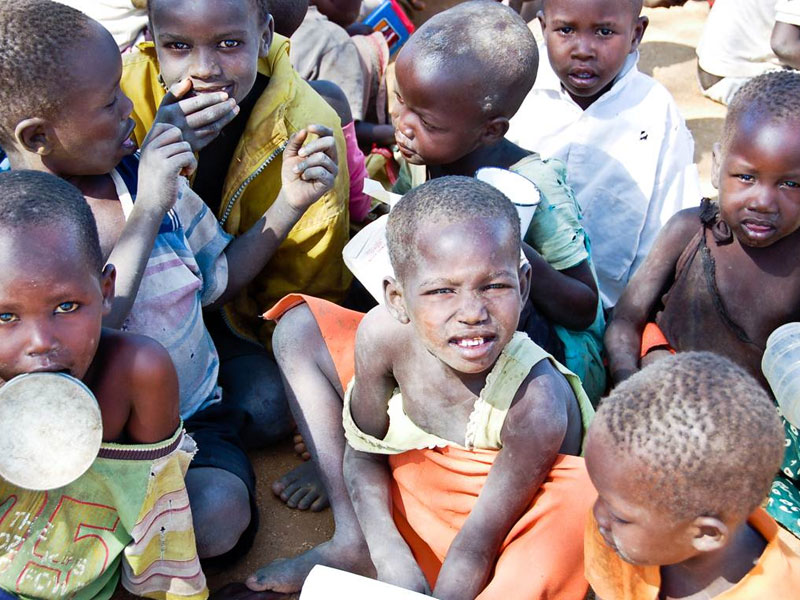Health
Malnutrition: KDSG., NGO validate food, nutrition policy

The Kaduna State Government with support from an NGO, HarvestPlus, has validated the state’s Revised Policy on Food and Nutrition (2023-2030).
It was reported that the policy was validated at a two-day workshop which commenced on Sunday in Abuja to refine and finalise the document.
They agreed that the policy would address the scourge of malnutrition and enhance nutrition consciousness in the state.
Speaking during the Monday’s session of the programme, the state’s Commissioner for Planning and Budget Commission, Mr Mukhtar Ahmed, said the validation aims at increasing stakeholders’ participation in developing the policy.
Ahmed, represented by the Chairman of the state’s Committee on Food and Nutrition, Bashir Muhammed, said that political appointees present at the workshop would ensure that the recommendations and resolutions were communicated to the higher authorities.
The commissioner urged the Ministry of Local Government Affairs to step down the policy to the 23 local government areas of the state.
“The validated policy will prioritise the most vulnerable populations, including pregnant women, children under five and adolescents, and focuses on improving access to nutritious food.
“It will also promote sustainable agricultural practices, and strengthen nutrition education and awareness.
“With this policy, Kaduna State is poised to make significant strides in reducing malnutrition and improving the overall health and wellbeing of its citizens,” Ahmed said.
Also speaking, the Permanent Secretary, Kaduna State Ministry of Health, Dr Aisha Abubakar, highlighted the critical link between nutrition and healthcare.
Abubakar stated that a well-nourished population was a healthy population, and that the policy would help achieve that goal.
She also highlighted some cultural factors, explaining that what people ate affected the nutritional indices in Northern Nigeria.
The permanent secretary called on all the stakeholders to be change agents and behavioral activists in pushing the right information on nutrition to the people.
The Permanent Secretary of the Kaduna State Ministry of Agriculture, Mr Abubakar Abba, underscored the importance of agricultural sector development in achieving food and nutrition security.
Abba stressed the ministry’s efforts in promoting irrigation farming, improving seed quality, and enhancing farmers’ capacity to ensure food production, availability and reduction of malnutrition in the state.
In his remarks, HarvestPlus’s Policy Advisor, Dr Fakunle Aremu, said the workshop was aimed at validating the policy document to ensure effectiveness in addressing the region’s food security and nutrition challenges.
Aremu commended the state government for its commitment to addressing malnutrition through the validation of the policy.
He also emphasised the importance of a multi-sectoral approach towards tackling malnutrition.
Aremu called for sustained efforts in promoting bio-fortified crops, improving access to nutritious food, and enhancing nutrition education.
He pledged HarvestPlus’ support in implementing the policy, while urging stakeholders to work together to ensure its successful implementation.
Other stakeholders including representatives from Civil Society Scaling Up Nutrition in Nigeria (CS-SUNN), UNICEF and Alive and Thrive, all pledged their commitment and support in the implementation process of the policy.
The facilitators, Dr Zainab Muhammad-Idris and Ms Jessica Bartholomew, presented an overview of key developments and emerging issues in food and nutrition in the state and Nigeria.
They said Nigeria had poor maternal and child nutritional indicators, where 37 per cent of children under five years are stunted and 11 per cent of women are undernourished.
They also said that regionally, the North-West had the highest proportion of children who are stunted (55 per cent), followed by the North-East (42 per cent) and North Central (29 per cent).
Comparing nutrition indicators performance for children under five years in Kaduna State in North-West zone between 2008 to 2018, the duo said 48.1 per cent were stunting.
They also said 4.8 per cent was wasting; 22.1 per cent underweight in children under five years, 1.9 per cent obese among children and adolescents (5-19 years) and 3.5 per cent obese among women of reproductive age.
The facilitators recommended improved nutrition policy landscape, community engagement to ensure local ownership and involvement and future directions where the food and nutrition policy defines long-term goals and visions.




 Davido's Net Worth & Lifestyle
Davido's Net Worth & Lifestyle 
